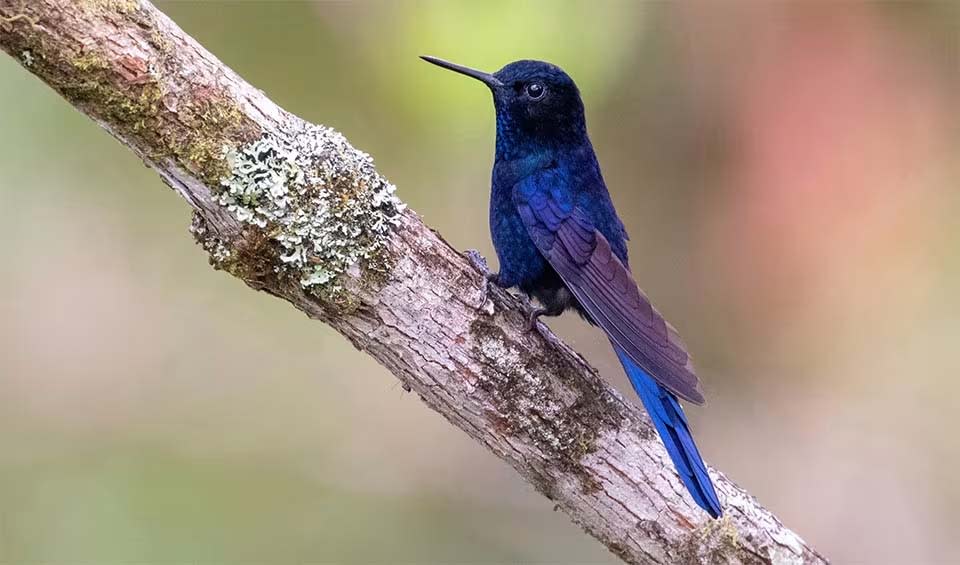The Royal Sunangel is a magnificent member of the hummingbird family, renowned for its captivating beauty and unique habitat preferences. Endemic to the mountainous regions of Ecuador and Peru, this exquisite bird is often referred to as the “elfin-forest king,” owing to its regal presence in the lush, montane forests where it resides.
Despite its diminutive size, the Royal Sunangel possesses a striking appearance characterized by its vibrant plumage and distinctive features. Sporting a short, black bill perfectly suited for sipping nectar from flowers and a long, forked tail that adds to its elegance in flight, this avian gem is a sight to behold amidst the mist-shrouded forests of its mountainous domain.
Like many hummingbirds, the Royal Sunangel is primarily nectarivorous, deriving much of its energy from the sweet nectar of various flowering plants that dot its high-altitude habitat. However, it is also an adept insectivore, using its long, delicate bill to capture small insects and other invertebrates, supplementing its diet with essential proteins and nutrients.
What truly sets the Royal Sunangel apart is its remarkable adaptation to the chilly temperatures of its mountainous habitat. Thriving in environments where the air is thin, and temperatures can plummet, this resilient bird has evolved specialized physiological and behavioral traits to survive in such harsh conditions. Its feathers, for instance, provide excellent insulation, trapping heat close to its body and ensuring that it remains warm and cozy even amidst the frosty mountain air. In essence, it’s like wearing a natural winter coat, allowing the Royal Sunangel to thrive year-round in its alpine abode.
Distribution
 Ecuador
Ecuador Official estimate
Official estimate
 Peru
Peru Official estimate
Official estimate
Anything we've missed?
Help us improve this page by suggesting edits. Glory never dies!
Suggest an editGet to know me
Terrestrial / Aquatic
Altricial / Precocial
Polygamous / Monogamous
Dimorphic (size) / Monomorphic
Active: Diurnal / Nocturnal
Social behavior: Solitary / Pack / Herd
Diet: Carnivore / Herbivore / Omnivore / Piscivorous / Insectivore
Migratory: Yes / No
Domesticated: Yes / No
Dangerous: Yes / No




